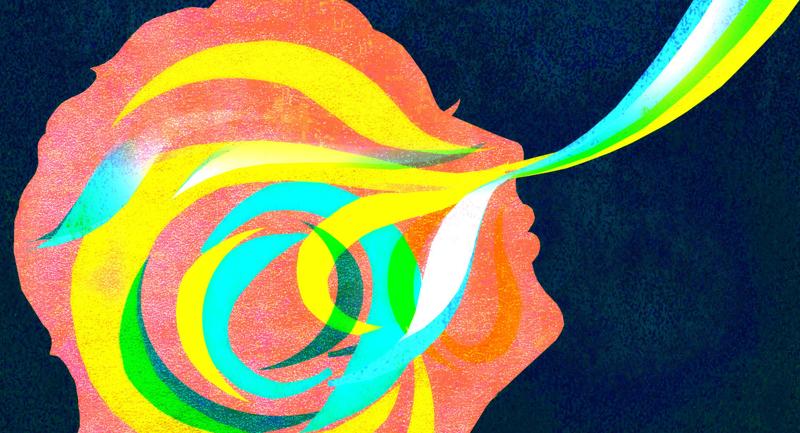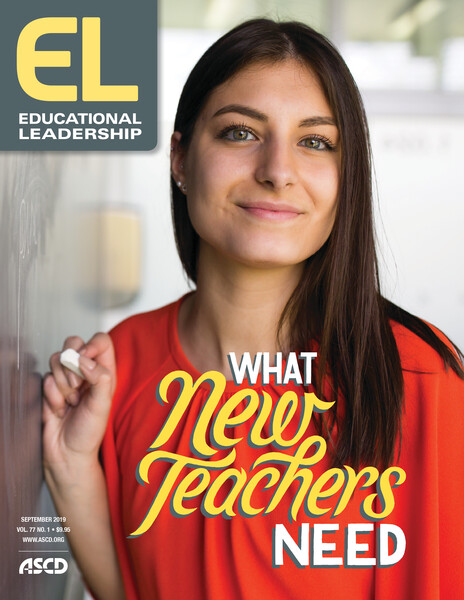In her influential book Mindset: The New Psychology of Success (Random House, 2006), Stanford University psychology professor Carol Dweck highlighted the importance of growth mindsets to learning. But new teachers, Dweck notes, may be especially susceptible to the opposite—fixed mindsets. They may be tempted to hide their struggles rather than bring them to light. Overcoming this temptation could be key to improvement in both themselves and their students.
Your work on growth mindset generally focuses on student development. How does it apply to new educators' growth as well?
People at the head of Teach for America and other teaching organizations started noticing that their most skilled young teachers were the ones dropping out of the profession at the highest rate. They were the same ones who had been repeatedly told that they had a natural talent for teaching. If a teacher has a fixed mindset about their own teaching abilities—you're either a natural born teacher or you're not—and then suddenly they're struggling, it can be extremely discouraging.
But if a teacher has more of a growth mindset toward their teaching skills, they realize that no matter how promising they are, those skills must be developed over time. They're more ready for that challenge, and their goal is more likely to be, How do I improve? It's about learning. And so, in that growth mindset, you would expect mistakes, you would look for them, you would acknowledge them, and you would learn from them. You'd ask experienced teachers to come and watch you and give you feedback rather than fearing humiliation. Maybe you'd form a network with new teachers and experienced teachers to ask questions and problem-solve.
One of my former undergraduate students went to teach in inner-city New York at a low-achieving K–5 school. She loved kids, had lots of great training, and thought she would be a rock star. But, she told me, she was devastated when she first started teaching. Far from feeling like a rock star, she went home practically crying every day. And then she started setting little daily goals for herself and her students (to get students to line up in an orderly fashion or to get them to learn one little concept). Within a few months, things were really improving. She understood very quickly that teaching is a long journey full of small learning steps. Ultimately, she took both a kindergarten and 4th grade class to the top of the state.
In your book, you note that even with a growth mindset, failure can "sting." How does an inexperienced teacher prevent that sting from being debilitating?
That's a fantastic question. We all have what we call fixed mindset triggers. It's not true that people just have a growth mindset, and that's the end of the story. We still are vulnerable to being triggered back into a fixed mindset when certain things happen. There are common triggers, like when you experience a failure or when you're struggling and not improving. Another trigger might be seeing a teacher who looks like they're having fabulous classes that are running easily and naturally. All of these can make you think, Maybe I don't have it. Maybe I'm not meant to be a teacher. Now you can either get discouraged or, if you recognize your fixed mindset triggers, you can find your way back to a growth mindset. What can I learn from this? Who can I turn to? What can I try next?
You caution against seeking out life partners who only "shore-up our self-esteem" and advocate finding those who also "challenge us to grow." How could this apply to new teachers in the workplace?
New teachers often have a fragile sense of themselves in such a demanding profession. With a fixed mindset, where they feel their ability is being judged, they might hide their struggles. Only tell their successes to people so that they'll get flattering feedback. Not ask experienced teachers to come observe them. But in a growth mindset, you want the people who can give you the most honest feedback that you can build on.
A former PhD student of mine became a professor in a business school where the students were really demanding and critical. At the end of her first term, she got terrible teaching ratings. But she didn't crawl into a hole. She asked every senior professor in the department to come observe a lecture and give her feedback. These were the people who were going to be evaluating her for tenure later on. But she knew they would help her understand exactly what she was doing wrong and offer ideas for improvement. She now has tenure!
Conventional wisdom says that principals should praise new teachers often and reinforce what they're doing right. Is there any harm in that?
It's important for principals to be supportive and positive, but not to praise in a way that implies some people have talent and some don't. Don't tell teachers "Oh, you're a natural, it will be easy for you." It's almost never going to be easy for new teachers. Setbacks will inevitably occur.
Principals should use the language of improvement. Ask what problems new teachers are having, how they've worked on them, and show appreciation or praise for the progress they've made. Turn them toward resources that can aid their progress and then come back later to further support and appreciate the progress.
What steps can a new teacher take to avoid falling into a fixed mindset?
First, they need to expect that that will happen. There may have been nothing in their training that prepared them to be alone in the classroom and have things spin out of control. They have to expect that these kinds of moments may trigger a fixed mindset and then get themselves back into a learning mode. OK, that was awful. I felt panicked. What do other teachers do in that situation and what can I learn from them?
Be willing to try new things and be willing to have those things not succeed at first. I think it's important to remember that right now you have the least skill and experience that you will ever have. It will only get better.
Finally, what growth mindset phrase or mantra could guide a new teacher's approach?
I really was impressed when I heard a teacher say, "Every student has something to teach me." It's an important reminder: Every student can help you become a better teacher.
Editors' note: This interview has been edited for space.






